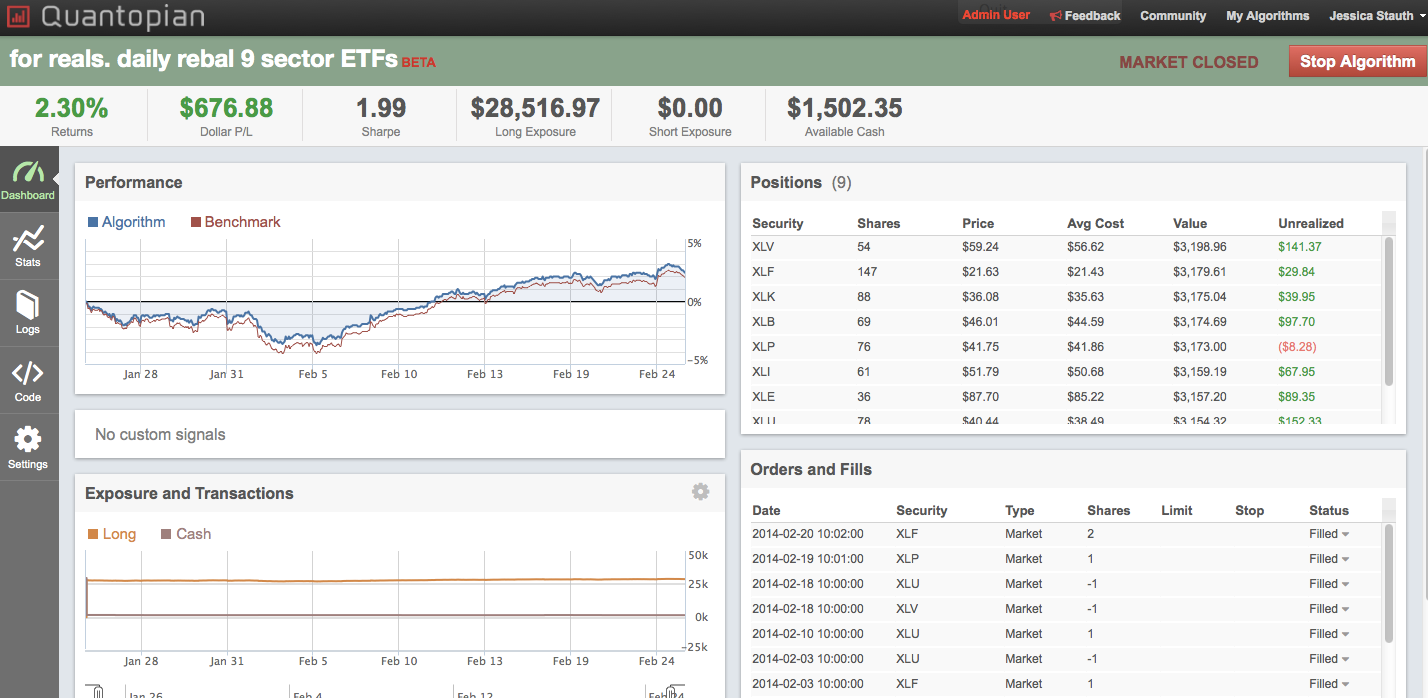One Boston FinTech startup, Quantopian, is open-sourcing its application to coders interested in researching and testing financial investment data. The company provides tools that allow anyone, if they have the ability, to “write market-beating algorithms.”
Founded in 2011, the company has raised US$24 million as a hedge fund startup, using crowd-sourced data to create and manage investments for many types of investors. John Fawcett, chief executive and founder of Quantopian, told the Globe:
“The most important trend behind our business is the explosion of data available from the real economy.”
The history of the free software movement, which led to the creation of open-source software, took root in the 1980s, in part in Boston at MIT. Today, companies all over the world are open-sourcing all kinds of software, allowing anyone to take it and use it to innovate, which is resulting in exploding tech and FinTech growth.
Andrew Campbell, Business Analyst of Quantopian, sat down with Cointelegraph for a discussion on how they are using open-source software to change the financial landscape.

Cointelegraph: What is Quantopian and what do you guys wish to accomplish in the current FinTech environment?
Andrew Campbell: Quantopian is a free platform for research, testing, discussing, and deploying stock trading algorithms. Top performers on Quantopian will be invited to join our crowdsourced hedge fund, the Quantopian Managers Program, where their algorithms will be backed by a multimillion-dollar pot of investor capital. As a part of the managers program, an algorithm writer is given a share of the profits they generate.
We also run an algorithmic paper trading contest called the Quantopian Open. Each month we award $100,000 in backing to the winning algorithm writer. After six months, they keep all the profit their algorithm produces.
Like many other FinTech startups, the recent explosion in data lies at the core of our business. Advances in data mining and machine learning coupled with availability of deep and diverse datasets have given trading algorithms a bigger edge than ever over their human counterparts. We believe everyone should have the tools to harness this wave of innovation and generate market beating returns.
“By democratizing technology and services previously only available to financial institutions, FinTech firms have empowered individuals to manage their money more freely and efficiently.”
CT: Growth of financial tech in Boston has been increasing. FinTech Sandbox reports about 100 new startups and VCs in recent years. How does Quantopian feel about Boston as a hub for innovation?
AC: We are thrilled with the upward trajectory of the Boston tech community. Boston's vibrant tech ecosystem and outstanding educational institutions have fostered a rich hiring environment for FinTech startups like us. Most of our team has Boston roots in one way or another.
“Given the right tools, individuals from all over the world are capable of competing with Wall Street’s best. We don’t care where your degree is from, where you work, or what country you live in. All that matters is your ability to write market-beating algorithms.”
CT: How does Quantopian fit in with the open-source world?
AC: Quantopian is built around Zipline, our open-source backtesting engine. In addition to Zipline, our engineers are active contributors to a number of other open-source projects like Pandas, Jupyterhub, and PyMC3. We’ve seen a tremendous benefit to open-sourcing our app. On several occasions, dedicated Quantopian users have added new features and performance enhancements to our codebase!
CT: Do you think financial technology is giving back to the customer or consumer in a better way than the financial system of the past?
AC: By democratizing technology and services previously only available to financial institutions, FinTech firms have empowered individuals to manage their money more freely and efficiently. We feel that algorithmic trading shouldn’t be limited to a small number of elite hedge funds. Given the right tools, individuals from all over the world are capable of competing with Wall Street’s best. We don’t care where your degree is from, where you work, or what country you live in. All that matters is your ability to write market-beating algorithms.

